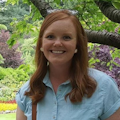Time-efficient studying techniques: Realistic tips to help you prepare for boards
Boards. That word alone throws many of us into a tailspin of anxiety. But with a little preparation and discipline, studying for boards does not have to be overwhelming and stressful. While preparing for boards this year, I will be utilizing some of the following study techniques. My hope is that some of these will stand out as helpful to you as you prepare to study for boards.
1. Online quizzes
Instead of scrolling through social media to pass time in between classes, logon to your favorite study app. According to statista.com, internet users spent an average of 136 minutes on social media per day in 2018.1 Consider replacing a little bit of social media time with a quiz app. Dedicating just 20 minutes a day toward studying online quizzes would add up to more than two hours of board prep a week! Quiz apps such as Kahoot! or Quizlet are excellent tools for review. Free accounts allow you to save quizzes that you or others have created and make tracking what you have studied fairly simple.
2. Record notes
Record yourself reading the study material and then listen to it during your commute, house chores, or exercise. This study technique is especially effective for those of us who are auditory learners. I use the recording app on my phone for convenience and accessibility. Making shorter recordings of each topic is useful because it allows you to pinpoint your listening to the topics that you need to brush up on the most.
3. Turn off your phone
Putting the phone on the charger and leaving it in a different room is a very effective way of making study sessions more impactful. Removing the phone as a distraction not only helps you make the most of your study time, but it will also prepare you for the environment of the board exam itself. We will have to learn to focus for hours at a time without the distraction of phones.
4. Set timers
Remember the kitchen timers your mom and grandma used while baking? Using a similar timer while studying for boards can be beneficial for multiple reasons. As boards approach, it will be important to practice performing under time pressure. For example, set a timer for 30 minutes and set a goal to finish a certain assignment or complete studying a specific chapter by the time the timer goes off. This not only helps us practice time management but also helps us maintain balance in our personal lives as the exam approaches. Setting a timer can help us stay motivated to get all our homework and studying done for the day in a relatively short amount of time, leaving us with time that we could spend for ourselves, friends, and family.
5. Ask peers for help
We do not have to study for boards on our own. While study groups may not be for everyone, they can be beneficial, especially when coming up with ways to remember certain concepts. Do not be shy about asking the others in your program for help. You have made it this far together, and there is no reason for that to change when it comes to preparing for boards. Consider forming a study group that gets together once a week to review a topic that everyone had studied separately. This would be a good opportunity to practice board questions, clarify difficult concepts, and teach one another tricks on how to commit certain facts to memory.
Studying for boards does not have to be an extraordinarily stressful experience. With a little bit of planning, preparation, and application of some study techniques, we can all prepare for and pass boards! My hope is that some of the suggestions above resonated with you as potential techniques to help you prepare for our upcoming examinations. I have applied all of these studying methods into my education in my first degree and now again, in my second degree. They have been useful to me, and I believe they can be useful to you as well. Good luck and happy studying!
Reference
1. Clement J. Global time spent on social media daily 2018. August 14, 2019. Retrieved from https://www.statista.com/statistics/433871/daily-social-media-usage-worldwide/
Rebecca “Becca” Neilson grew up in Provo, Utah. She graduated from Brigham Young University in 2014 with a bachelor of science in biology. She is happily married and lives in Elkhart, Indiana. Becca’s long-time hobby is arranging flowers and she currently works as a florist. She is excited to graduate and receive her dental hygiene licensure in May 2020. She thrives on interpersonal relationships and finds satisfaction in helping others learn. Becca can be reached at [email protected]
About the Author

Rebecca Neilson, BS, RDH
Rebecca “Becca” Neilson, BS, RDH, grew up in Provo, Utah. She graduated from Brigham Young University in 2014 with a bachelor of science in biology, and Indiana University South Bend in 2020 with a bachelor of science in dental hygiene. She is happily married and lives in Elkhart, Indiana. Becca’s long-time hobby is arranging flowers, and she currently works as a florist. She thrives on interpersonal relationships and finds satisfaction in helping others learn. You can reach her at [email protected].
Updated August 26, 2020
